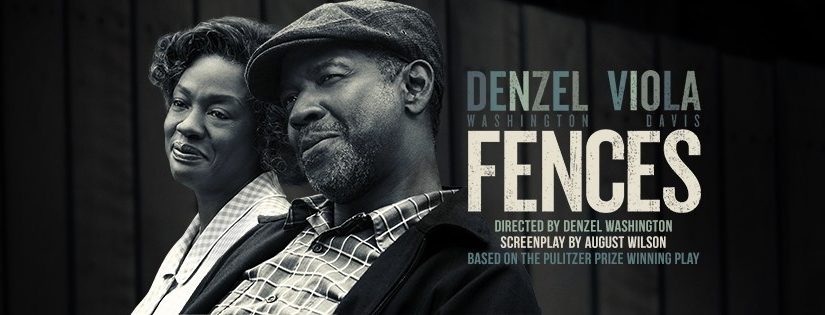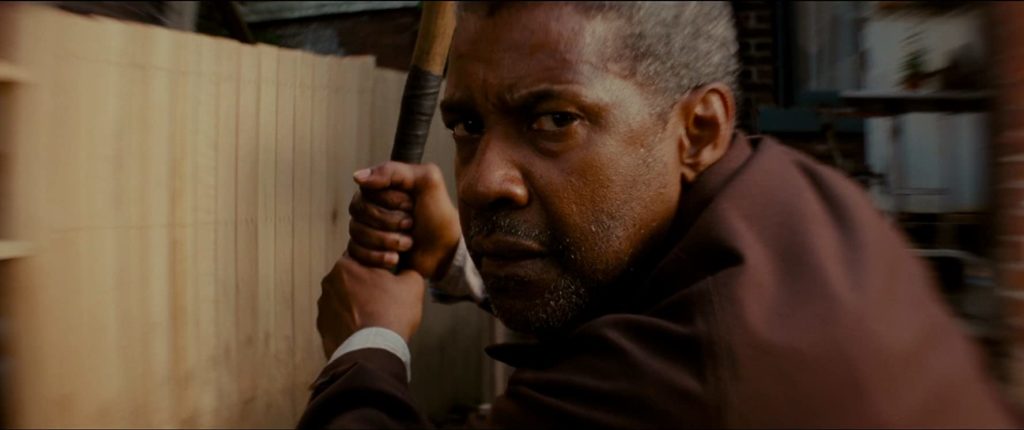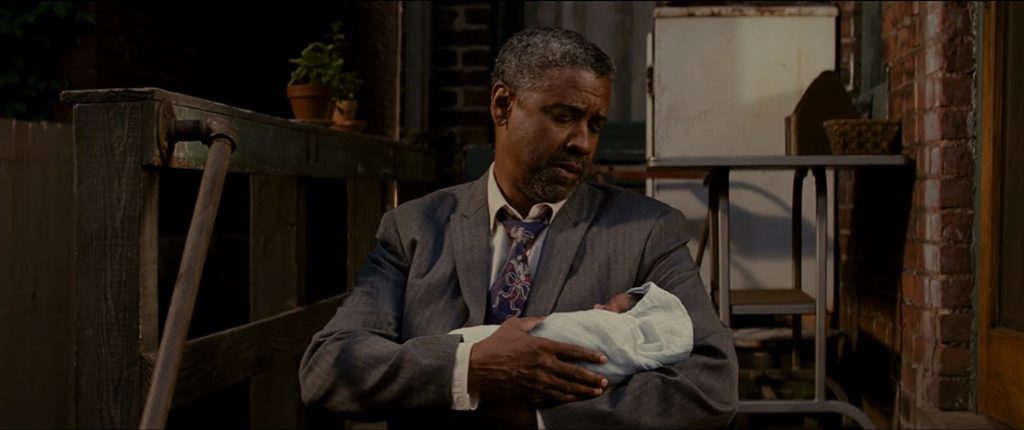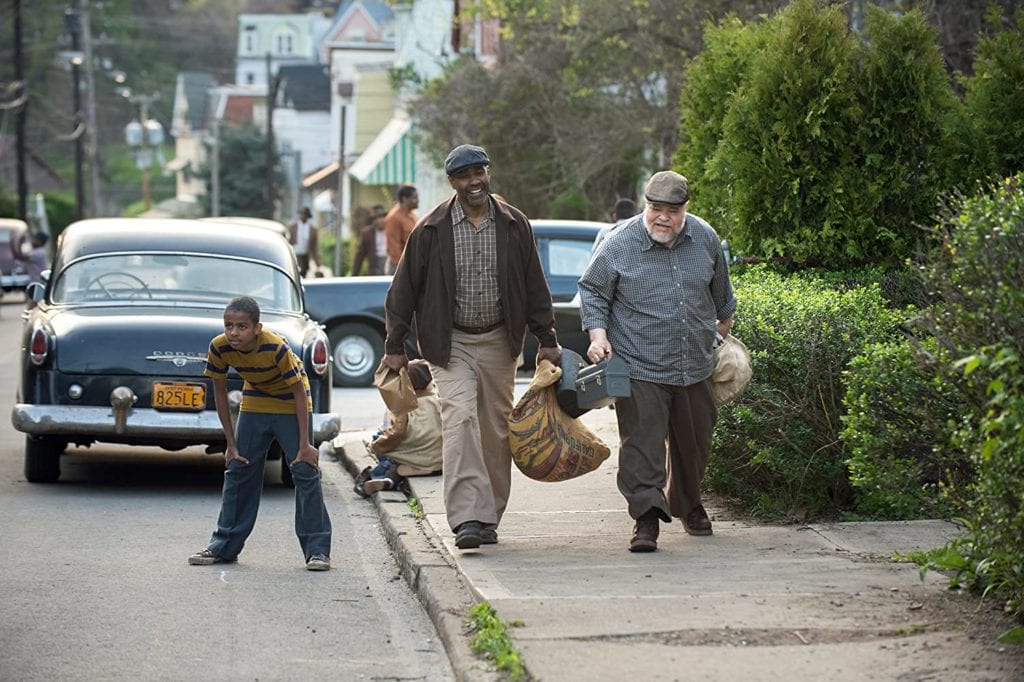Denzel Washington: Director and Star of Fences (2016)
BY JOANNA OLGUIN – SCHOLARSHIP WINNER
Powerful, emotional, and raw, Fences (2016) is an extraordinary film that brings family to the big screen in the most realistic way possible. Directed by Denzel Washington, Fences is based on August Wilson’s play about a working-class, low-income African American family in the 1950s. Troy Maxson (Denzel Washington) is the man of the house, the patriarch filled with pride working a job as a sanitation worker in an attempt to provide for his family.
Despite wanting to help loved ones, Maxson struggles and becomes engulfed by his own desires and wallows in memories of the past, all of which lead to the demise of his family. Every aspect in Fences is so carefully blended that it made it difficult to distinguish between the things that made this movie so great. This was more than just a movie; what the audience and I saw was real–we were watching someone’s life unfold right in front of us.

That is What Made Fences So Great
While most films are either adapted from an original screenplay or are a spin-off of another work, Fences was taken directly from a play, and that key detail became very important to the success of this movie. It is common to feel disappointed after watching a movie, especially if you read the written work beforehand. Films are incapable of illustrating the same amount of emotion, experience, and development as the text it came from. This was not the case for Fences. As critic Peter Bradshaw states, Fences is a “fervent, prolix, stately but beautifully acted drama.” This film feels more like a play with no scene changes rather than a movie.

Impeccable Dialogue
Henceforth, every word is important. This film was not about hiding behind visual effects or over-the-top drama, it is organic. The story is revealed through impeccable dialogue. As the actors spoke, their life was revealed. The sequences are long, but they are packed with meaning and filled with soul. With every word said, we learn more and more about the characters. Every word stated held power and it is that power that adds onto the realness of the film. This film’s script is so captivating and realistic that you cannot help but feel what the characters feel.

An Outstanding Cast
Additionally, Fences is centered around dialogue, that dialogue is carried by an even more astounding cast. Every actor presented in this film helped strengthen the storyline. The film was centered around Washington’s Troy Maxson, but every character added something great to the film, particularly Viola Davis who acts as Troy’s wife, Rose Maxson. When Davis speaks, emotion follows. In one of the most notable scenes, Troy presents Rose with information that damages the family.
With eyes welled with tears, Rose cries, “Don’t you think I ever wanted other things? Don’t you think I had dreams and hopes? What about my life? What about me?” (1:21:40-1:21:41). In this scene (and throughout the movie), Davis became one with her character, perfectly expressing the pain that comes from a heartbroken woman. Her performance felt so natural, so pure, that it made me wonder if this was acting or if I was watching someone’s life. At this moment, you feel nothing but emotion. The intense and powerful way she delivered this speech brought this character to life.
Furthermore, the pared-down set of the film forces the audience to really focus on the action and dialogue of the characters. There were no random scenes in a grocery store or in a random place across the world. Everything was centered around the home, and the home is centered around the fence. That fence is a representation of the boundaries Troy set to separate himself from the ideas and things he does not want in his life–a shield to protect himself. The use of the home pushes the overall themes of the film, suggesting that is the border of your house, your fence becomes damaged, it opens your home to danger.

Fences is a Fierce and Moving Film
As previously mentioned in my introduction, everything in this film is beautifully put together. This is a story about every home. In most films, the family is illustrated with rose-colored glasses—everything is “perfect.” Fences, on the other hand, highlights the imperfections in families. While this film may take place in the 50s, the problems in this film are still relevant, making it very relatable to many.
I greatly appreciate the accuracy of this film. Though what took place in this film may not have been accurate for everyone’s life, what it exemplified was real. Fences got right to the point and the drama was not over the top. Everything that occurred was a result of the actions taken. Many movies have that one scene that is meant to make you cry, but that is not the case with this film. By living and experiencing these things with this family, everything felt real. Fences did an amazing job of engaging the audience, all while feeling authentic.
This was not just a movie; this was an experience.

